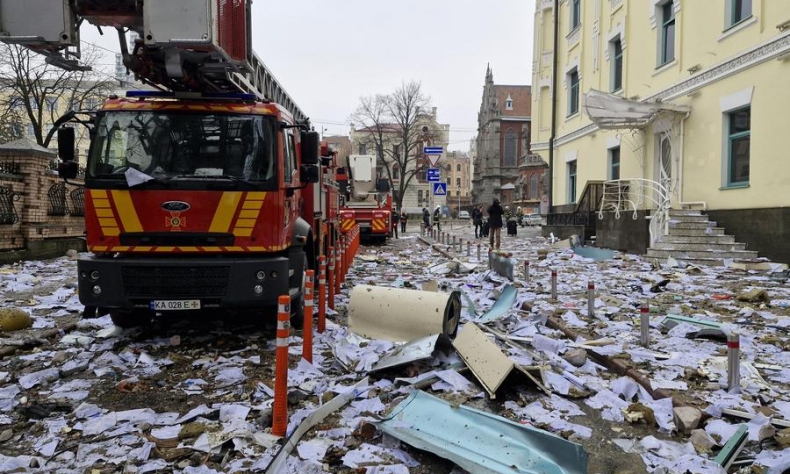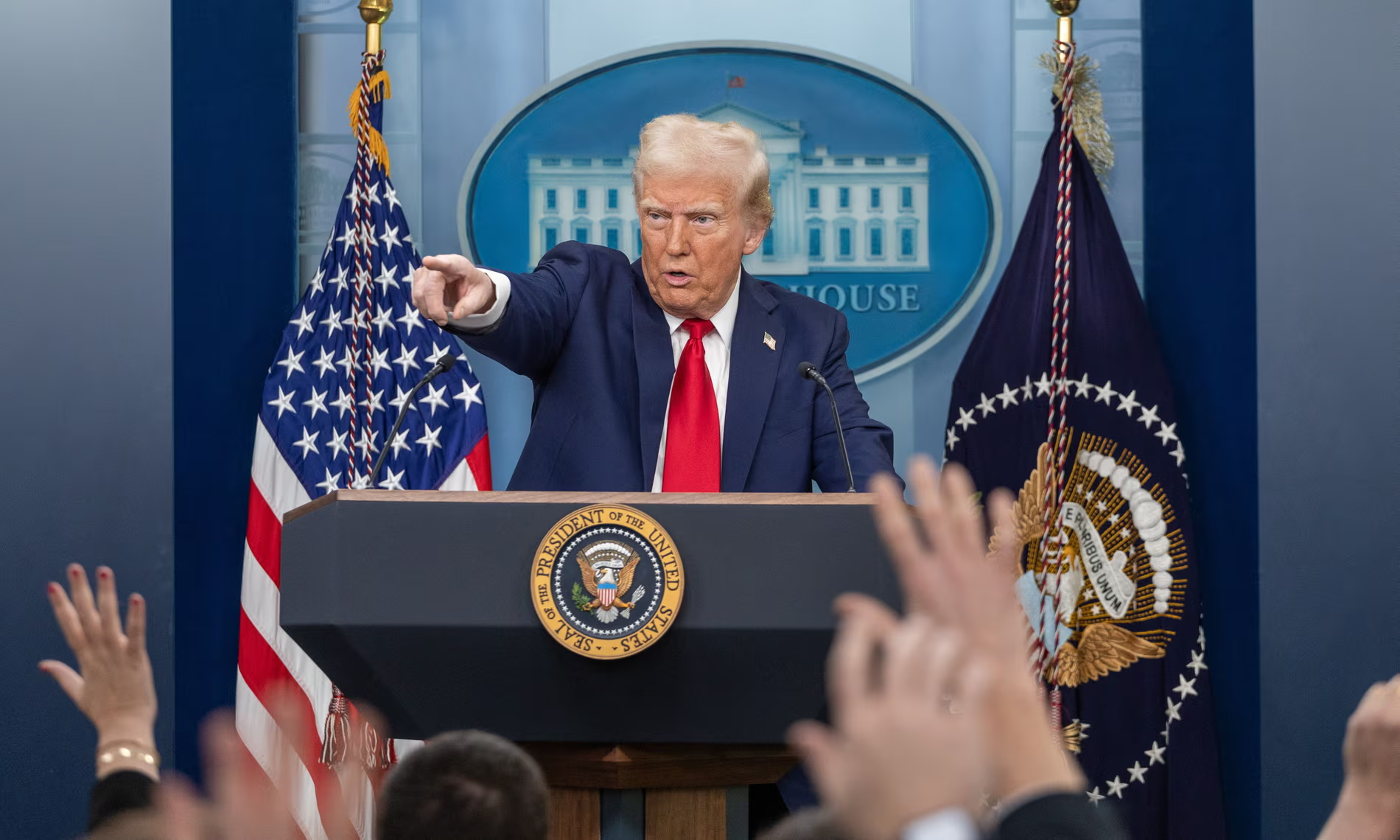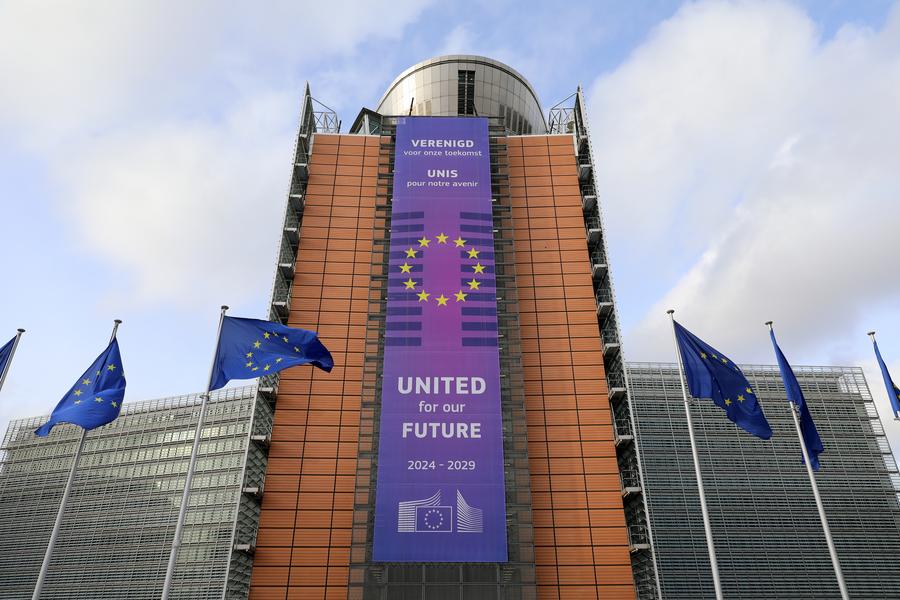Washington and Moscow Demand a Political Shift in Ukraine’s War-Torn Landscape

The talks between Russia and Ukraine are likely to become a high-stakes contest of power involving the U.S., Europe and Russia. The outcome will have significant implications for Europe’s long-term peace and stability, and will also serve as a true test of Trump’s stance toward the EU.
As the Russia-Ukraine conflict enters its fourth year, a shift is emerging in this protracted war. In a recent interview with British journalist Piers Morgan, which aired on February 5, Ukrainian President Volodymyr Zelensky indicated, for the first time, his willingness to end the “hot stage of the war.”
This statement, however, came amid unprecedented pressure from both the United States and Russia, as both Washington and Moscow insist that Ukraine must hold elections. As a result, Zelensky’s administration is facing an existential crisis, grappling with pressing questions of legitimacy and survival.
In a surprising development, U.S. President Donald Trump and Russian President Vladimir Putin—two leaders with sharply divergent approaches and political ideologies—have found common ground in their calls for Ukraine to conduct elections that could potentially lead to the replacement of Zelensky.
The power chessboard
Zelensky’s presidential term was originally set to conclude on May 20, 2024. However, following the outbreak of the Russia-Ukraine conflict in February 2022, Zelensky declared a state of war, which, according to the Ukrainian Constitution, suspends the possibility of parliamentary or presidential elections. As a result, Zelensky has been able to continue fulfilling his presidential duties beyond the official end of his term.
In November 2024, Zelensky signed a bill extending both the state of war and the country’s general mobilization order for an additional 90 days, pushing the deadline to February 7 this year. This extension also postponed the presidential election that was originally scheduled for last year.
On February 2, news agency Reuters reported that Keith Kellogg, the U.S. special envoy for Russia-Ukraine issues appointed by Trump, had called for elections in Ukraine during an interview on February 1.
In the interview, Kellogg expressed optimism that some progress could be made in ceasefire negotiations between Russia and Ukraine within the next 100 days. He also stated that the U.S. hopes Ukraine will hold elections by the end of this year, especially if a ceasefire can be achieved.
Following Kellogg’s interview, a report by news portal POLITICO Europe on February 3 underlined Kremlin spokesman Dmitry Peskov’s reinforcement of Russia’s position. Peskov asserted that “the legitimization of Ukraine’s leadership” is essential for the peace process and emphasized that “President Zelensky’s term of office has ended.”

The POLITICO Europe article also included comments from a former Ukrainian minister who spoke anonymously. This official expressed concern about the unexpected alignment between Washington and Moscow regarding Ukrainian elections, stating, “The alignment on elections between Washington and Moscow is worrisome […] I see it as the first evidence that Trump and Putin agree that they want Zelensky out.”
This unusual alignment between two traditionally opposing powers has heightened fears of a coordinated effort to weaken Ukraine’s leadership, signaling a potentially pivotal shift in the ongoing conflict.
Unanimity or struggle
For Zelensky, the election debate is a matter of political survival. Although postponing elections under martial law was initially considered a wartime necessity, his prolonged rule without a fresh mandate has considerably diminished his political capital. According to a December 2024 survey by newspaper The Kyiv Independent, his approval rating was at 49 percent, trailing former military chief Valerii Zaluzhnyi, who enjoyed a 72-percent approval rating. While holding elections could potentially lead to Zelensky’s removal, it also risks exacerbating national divisions at a critical time for Ukraine.
Although both Russia and the U.S. seem to present a unified stance on the issue of Ukrainian elections, their underlying motivations are markedly different. Wang Shuo, a professor at the School of International Relations at Beijing Foreign Studies University, explained the attitudes of both countries toward the elections are part of a larger strategic game between them.
“Russia has consistently questioned the legitimacy of Ukraine’s leadership. If it can label Zelensky’s administration as ‘illegitimate,’ this would provide a stronger basis for some of Russia’s actions in east Ukraine. In this regard, Russia is quite pleased with the idea of Ukrainian elections,” Wang told CCTV News.
From the American perspective, Wang suggested that the White House may view the opportunity to replace Ukraine’s leadership with someone more compliant as a way to facilitate ceasefire negotiations. Given Zelensky’s close relationship with the Joe Biden administration, the current Trump administration might prefer a leader who aligns more closely with American priorities.
Moreover, as a deal-making president, Trump personally weighed in, demanding Ukraine make concessions regarding mineral resources in exchange for U.S. military aid. “We’re telling Ukraine that they have very valuable rare earths,” Trump told reporters at the White House on February 3. “We’re looking to strike a deal with Ukraine where they’ll secure what we’re giving them with their rare earths and other resources,” he added.

A party that cannot be ignored
As a direct stakeholder in the Russia-Ukraine conflict, Europe is keen to ensure it is not sidelined by the U.S. and Russia during any direct negotiations.
On February 3, EU leaders, British Prime Minister Keir Starmer and NATO Secretary General Mark Rutte gathered in Brussels, capital of Belgium and home to several key EU institutions, for their first-ever meeting focused exclusively on defense. The objective of this gathering was to reinforce defense spending in response to Russia’s actions and to devise strategies for countering Trump’s growing influence in the conflict.
In his remarks, António Costa, who assumed the role of president of the European Council—which defines the EU’s overall political direction and priorities—in December 2024, reaffirmed the EU’s commitment to Ukraine’s security and the pursuit of a comprehensive, just and lasting peace.
“We, Europeans, have already delivered support to Ukraine to the tune of 134 billion euros (about $141.04 billion), and we will continue to deliver. We are determined to support Ukraine for as long as necessary and whatever it takes,” Costa declared.
Meanwhile, 19 of the 27 EU countries, including France, Germany, Italy and Spain, have urged the European Investment Bank to allocate more funds to the defense industry as part of the EU’s collective rearmament efforts in response to possible Russian aggression.
A Reuters report from February 4 highlighted that at the Brussels meeting, Starmer urged European leaders to “up the pressure on Putin,” calling on all allies—especially those in Europe—to “step up” efforts and “crush Putin’s war machine.”
Although Europe considers the U.S. a main ally in the Russia-Ukraine conflict, a new threat looms from across the Atlantic. Trump has publicly expressed interest in acquiring Greenland as part of the U.S., signaling a broader geopolitical ambition that could leave Europe vulnerable. While the EU has consistently supported Ukraine, its member states now find themselves increasingly reliant on NATO for protection and may risk being sidelined by American interests.
In the wake of a phone conversation between the American and Russian presidents on February 12, Trump revealed that he and Putin have instructed their teams to “immediately” begin negotiations regarding the conflict in Ukraine, adding that he had also spoken with Zelensky.
The talks between Russia and Ukraine are likely to become a high-stakes contest of power involving the U.S., Europe and Russia. The outcome of these talks will have significant implications for Europe’s long-term peace and stability, and will also serve as a true test of Trump’s stance toward the EU.
“China believes that dialogue and negotiation is the only viable way out of the Ukraine crisis and has been committed to promoting talks for peace,” Guo Jiakun, a Chinese foreign ministry spokesperson, said at a regular press conference on February 13. “China supports all efforts conducive to the peaceful settlement of the crisis, and will maintain communication with relevant parties and play a constructive role in promoting the political settlement of the crisis.”
 Facebook
Facebook
 Twitter
Twitter
 Linkedin
Linkedin
 Google +
Google +










